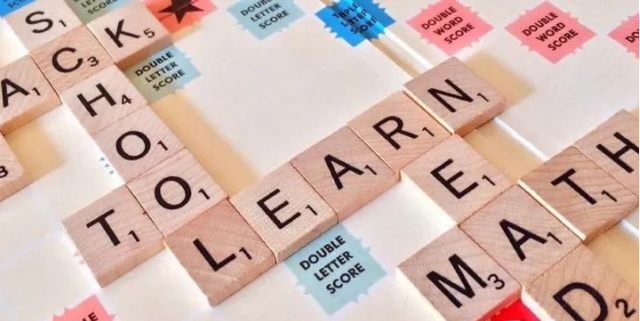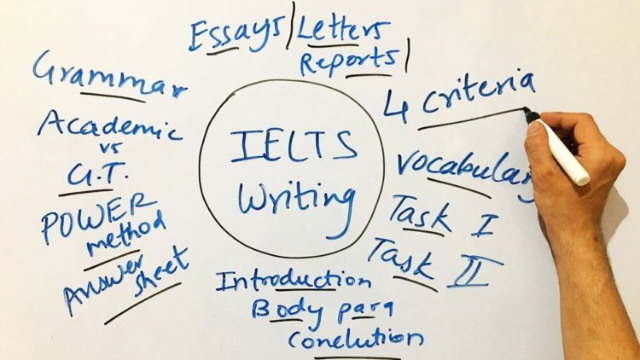Today, let's MIC Xiaobian to share with you a big god with IELTS 9 points, her name is Lily, what he experienced in the process of preparing for the exam, let him lead us to see together!

Q1: What is most important to prepare for IELTS? - Right attitude!!!
Nowadays, there are many students who have the attitude that they will not learn English without exams, and they will only learn English when they have exams. This leads to the idea that learning English is for exams, which is wrong.
Lily said that the test itself is a test of your English ability, not the end of your language learning. No matter which institution or school, you can only teach 20% of the content, and the remaining 80% of the content needs to be learned by yourself, and it is very important to have this awareness. Secondly, it is what you should do on the way to learning the language (including preparing for IELTS).
Q2: So how exactly should I prepare for IELTS?
When you have a year or more to prepare for IELTS, you can practice one by one. Of course, in addition to practice, Lily feels that efforts on other aspects of the language are also very important, which requires you to learn more about the same level.
PS: The most important thing is speaking

Many IELTS students' speaking scores have always been relatively low, and the reason for this is not because of the rumored subjectivity of IELTS examiners, but because there are a lot of presentations abroad, so IELTS is not only a test of language, It also takes into account the adaptability of foreign universities.
For example, in the IELTS speaking test, the examiner will ask you: "Do you like chocolate?" "Do you like looking in the mirror?" There are no routines and it is very close to life, so you can play freely on the test, and don't take the speaking test as an answer to the question, in fact, just chatting with him, and the effect will be better if you are relaxed.
Like this
“Where is your hometown?”
" My hometown is the beautiful city of Shanghai, it is located near the waterside, so I always do a lot of sporting activities." But if you want to sprint high , It is still necessary to do enough homework and preparation in advance! Because in the few seconds of play, for many reasons, you may not be able to make a beautiful statement at once 。
In fact, the oral practice of low-scoring candidates is not very difficult, oral communication does not need too fancy things, you just need to ensure that the pronunciation is accurate, the expression is fluent, and the answers before and after are relevant. High-level candidates must be able to answer in-depth questions, which requires everyone to prepare for the content in advance.
And the best way to practice speaking is to move the place where you practice speaking to a public place, such as an elevator speech. Generally, the elevator of the shopping mall will be in and out at any time, and it is very courageous to suddenly speak, if you can do this when practicing speaking, you will feel that speaking is actually a very easy thing, and the expression will be very free.
Q3: Are words important? But memorizing words is painful...
Indeed, words are hard bones!
In addition to speaking practice, Lily also points out that words are also the most important part of preparing for IELTS.

Words are really very important, however, learning words is not memorizing word lists. Just memorizing these words is not yours, because usually you don't use it at all, you have input, it is natural to need output, very natural rules.
After learning these words, you must try to use them in different ways, the simplest is that you can do different exercises, such as fill-in-the-blank exercises, multiple choice questions, etc. You can also put this word into a sentence, an answer, or even a phrase, and memorize the word should take up 50% of your entire revision time. When you learn words according to this plan, you will find that the words used in life can be used in other contexts, so it is also very important to read more.
PS: Think when you write

Words are really very important, however, learning words is not memorizing word lists. Just memorizing these words is not yours, because usually you don't use it at all, you have input, it is natural to need output, very natural rules.
After learning these words, you must try to use them in different ways, the simplest is that you can do different exercises, such as fill-in-the-blank exercises, multiple choice questions, etc. You can also put this word into a sentence, an answer, or even a phrase, and memorize the word should take up 50% of your entire revision time. When you learn words according to this plan, you will find that the words used in life can be used in other contexts, so it is also very important to read more.
Lily also mentioned some thoughts on writing: "Those writing templates are all test templates, and most of our students are very lazy, so they like to set templates directly. Imagine that when the examiner sees your essay and has read more than 50 of the same sentences, would you want to read it if it were you? So the examiner estimates that at a glance, if the beginning and end of your article have a good framework and a little appearance, it will immediately score 5.5. ”
So in article writing, don't be lazy, really write, to express your own views, ideas, even if there is not such gorgeous rhetoric. You can take it, and it is useful, but the premise of taking is that you know how to use it, so be sure to make the examiner want to see your stuff and be interested in reading it.
Q4: Is there a shortcut to learning IELTS?
Short-term sprints have a clever trick, but they're not absolute. If you want to achieve a short-term sprint, this can only be done under the premise that you have a relatively solid English foundation and sufficient review time.
What if you don't have so much time to review systematically, or if you have an exam in half a month, and you haven't reviewed yet? At this time, what you can do is brush the questions, keep brushing the questions, only the sea of questions, there is no other way. Because you have to stuff everything into your brain in a short time, and the first point of short-term sprint is that you must have an understanding of the topic, know what you are going to face, you can't go to the exam with an empty brain and don't know what you want to do, familiar with the question type, familiar with the answer method, familiar with what the question giver will have for a long time, such a review is very effective.
However, the editor has to remind you that IELTS is not a subject, just an exam. A solid English foundation can really help you improve your scores in the short term, if the English foundation itself is very weak, words and words will not, word grammar are a bunch of mistakes, no matter how you brush the questions to practice is doing useless work, your score will not have any improvement. Therefore, it is still recommended that everyone start with basic vocabulary, grammar, sentence patterns, etc. as soon as possible , the so-called foundation is stable, the superstructure can reflect its value!
Finally, I wish all the roast ducks a successful exam!